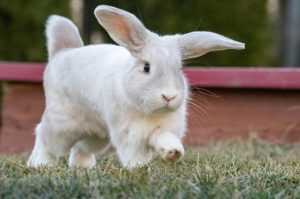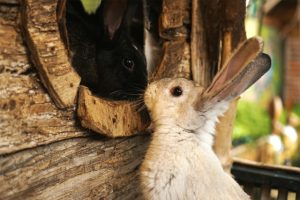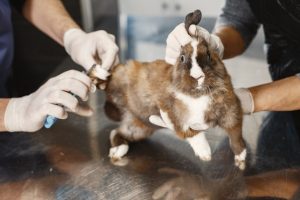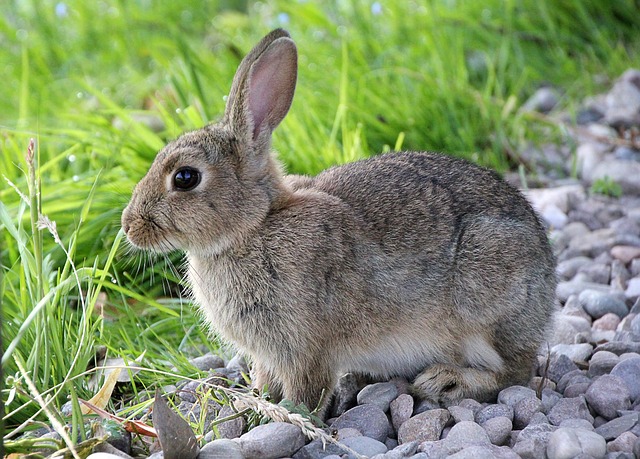
Snuffles is known as the rabbit cold, and it is an upper respiratory bacterial infection caused by Pasteurella multocida bacteria. This infection usually affects the eyes, nasal passage, nose, and ears. Snuffles come with easily noticeable symptoms. But if you don't notice things quickly, or you don't know what you're looking for, it might take a long time before you know because rabbits usually try to hide their weakness.
Sometimes snuffles in rabbits are only a mild infection with minute symptoms, and the rabbit healing up just fine. But snuffles in rabbits primarily usually result in pneumonia or having excessively breathing difficulty. As soon as you notice your rabbit has snuffles, you should get aim for treatment because snuffles, if left untreated, might result in the death of your rabbit.
Snuffles have symptoms, some are mild, and others are severe. If you spend enough time with your rabbit, you'll be able to notice the symptoms before the condition gets severe. Some of the symptoms include:
- Excessive sneezing
- Watery eyes
- Runny nose
- Matted fur on paws from consistently cleaning their nose and eyes
- Wet nose
- Difficulty breathing
- Drooling
- Loss of appetite
- Loss of energy
- Skin sores
- Head tilt
Causes of snuffles in rabbits
Several factors can cause snuffles in rabbits, but the two most common are:
1. Pasteurella multocida bacteria is usually found in the airways of rabbits and is the most common snuffles causing bacteria in rabbits. Although the bacteria usually only cause infection when the rabbit is stressed, or sick, or living in a small, poorly ventilated hutch, or one that is not adequately cleaned. Pasteurella is also the most common causative organism for eye infection, dacryocystitis, a head tilt, or sometimes the presence of abscesses in the head and brain area.
2. Bordetella bronchiseptica is another bacteria that are the causative organism for snuffles in rabbits.
3. Not only bacteria, but viruses are also causes of snuffles, although this occurs in sporadic cases
4. Sometimes snuffles in bacteria are caused by living in poor conditions. For instance, if the hutch is too small or not properly ventilated, or if it's not kept clean and there's the build-up of fumes from urine Ir wood shavings over time, it can irritate the eyes or nasal lining, leading to snuffles. If the environment is overcrowded, or if the rabbit is stressed out.
5. If the rabbit is suffering from other diseases, it usually affects the ability of the immune system to fight against infections
6. Rabbits suffering from dental diseases are at greater risk of contracting the disease, usually because the tooth roots pass very closely to the nasolacrimal tear duct. When the teeth become overgrown and sometimes maloccluded (that is, they do not meet), the tooth roots push upwards, obstructing the drainage of the tears down the nose. Infection in the tear duct can drain into the nasal cavity causing secondary infection of the nasal cavity.
7. Presence of respiratory irritants like smoke, dust, high ammonia levels, and others irritate the nasal lining, usually resulting in the secondary infection of the nasal cavity. Although common in rabbits' environments, foreign bodies such as hay, hair, or grass seeds can cause secondary nasal infections.
8. Contact with infected rabbits: when your rabbit comes in close contact with an infected rabbit, such that the rabbit sneezes near yours, or they share the same feeding bowl or water bowl. Your rabbit is at risk of contracting the infection.
9. Some bacteria strains affect humans and other species alike. The Bordetella bronchiseptica is one of such. If your rabbit comes in contact with another pet that has a harsh cold, or you, the pet owner, and Bordetella infected you, It's very likely that your rabbit contracts this infection.
How To Prevent Snuffles
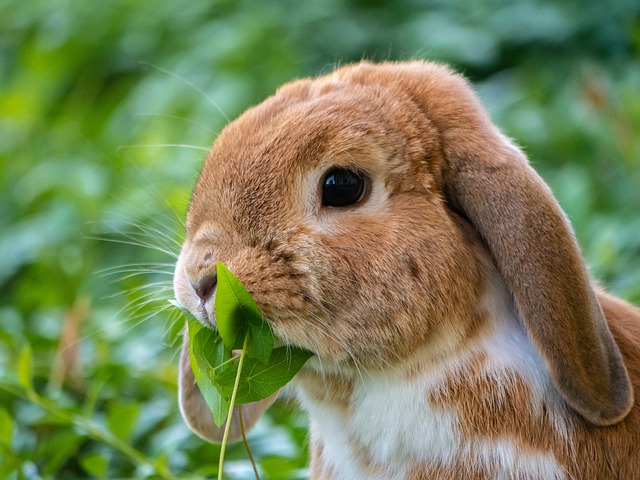
Snuffles is very contagious among rabbits, and entirely curing rabbits of the disease is quite difficult. The best course of action to control and eliminate this disease is to prevent it's breaking out. Prevention is better than cure. By taking safety measures against the disease, you can avoid its incidence or severity if incidence occurs. Its one of the common health problems in rabbits.
If you're a breeder, you should take precautions, be strict with sanitation, and perform occasional quarantine if it seems like one of your rabbits has a case of cold. And if you're a pet owner, the first course of action is selecting a healthy rabbit.
As a pet owner, check the rabbit you're picking against all symptoms of snuffles, check against the runny nose and other signs of the infection. If you're choosing a young rabbit, you should also inspect the mother and the rest of the litter. They must all be free from every sign of infection.
Also, if you're buying your rabbit from a breeder, inspect the environment to ensure it is well taken care of, and check other rabbits present on site to confirm that none is suffering from snuffles. When it comes to snuffles, one can never be too careful.
Suppose you just bought a new rabbit before introducing it to your group of rabbits. In that case, it is essential that you first quarantine it to monitor for signs of the illness to avoid contaminating your pre-existing rabbits.
Also, Pasteurella is present in some rabbits, but they do not present the symptoms. This is why it is essential that you raise your rabbits in a clean, well taken care of, proper living space. The hutch must be ventilated and not too small. Ensure that your rabbit eats properly and eats the appropriate diet. Also, try to avoid every form of stress for your rabbit.
Reducing stress will help prevent your rabbit from being infected, and if eventually, your rabbit gets infected, it prevents the condition from being severe. This is why you should provide the best possible living conditions, a variety of fresh vegetables, hay, and pellets every day, and about your rabbit coming into contact with sick rabbits. Also, be careful when handling other rabbits and pets, and always wash your hands and clothes before handling your rabbit.
Rabbits with long-term or recurring snuffles should be kept apart from the rest of the rabbits to avoid contaminating. They should also be adequately taken care of with the best possible housing conditions, comfortable temperature of no more than 75 degrees, and nutrition to avoid alleviating their stress levels and causing a recurrence of the disease.
Studies have shown that what rabbit eats affect their dental health, and since dental disease is one of the risk factors of snuffles, ensure your rabbits eat healthily. They should eat more hay and grass to avoid their teeth wearing out.
Disinfect everything infected rabbits came in contact with, toys, cages, bedding, food and water bowls, the clothes you wore around the sick bunny too.
Cure
Once you notice that your rabbit is presenting the symptoms of snuffles, the first thing to do is take your rabbit to the vet, especially one experienced in treating rabbits. The rabbit will be hospitalized pending the time the rabbit's condition will improve.
If your rabbit is suffering from difficulty breathing, he'll first be administered oxygen. Then he'll be treated with antibiotics and anti-inflammatories. After your rabbit has been stabilized, he'll be placed under a fluid drip, supported with treatments that will help keep the rabbit breathing and also aid the rabbit's improvement. And if other symptoms need to be treated, they'll be taken care of.
If you noticed the symptoms while they're still mild, your rabbit wouldn't need to be hospitalized. Still, after a short stay in the hospital, if they show signs of improvement, they are likely to be sent home with you, with antibiotics and other medications that will help them get better.
If you're going to be taking care of your rabbit at home, ensure you administer all his medications. If you're having troubles with administering the drugs or struggling to keep to the specified time, you can let the vet know so that the vet can help. You should also ensure that your rabbit is feeding well and improve the eating and housing conditions to help your rabbit get better quickly.
It is possible to cure the symptoms, but it doesn't completely eradicate the bacteria from your rabbit's system. Your rabbit will get better at that time, but in scenarios where their stress level is alleviated, recurrence of snuffles is possible.
Although the disease is long-term, if you manage your rabbit very well, giving them the best possible housing conditions and improving their nutrition, chances of recurrence are very slim, and the bacteria will remain dormant. However, healthy rabbits can contract the bacteria, so they should not come in close contact with your healthy rabbits.
Conclusion
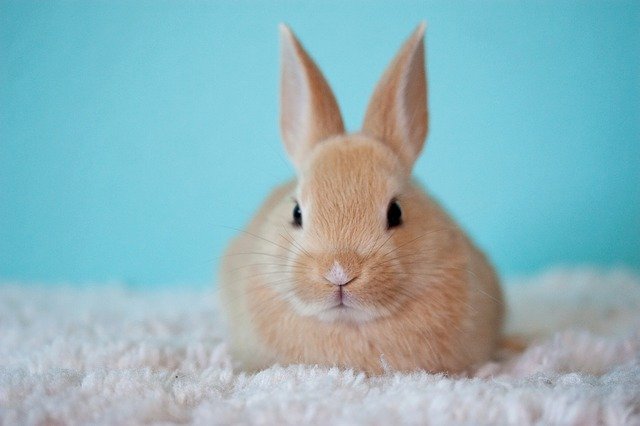
Snuffles are every rabbit and rabbit owner's nightmare, which is why every pet owner should try their best breeding their rabbits in very favorable conditions to prevent the incidence of the disease. Prevention is better than cure because the disease lasts a lifetime.


